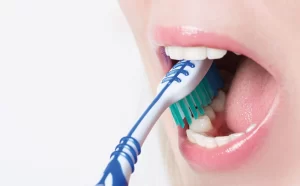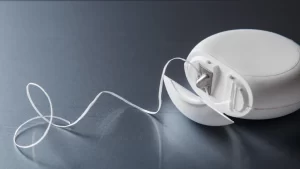Brushing vs. Flossing: Which Is More Important?
When it comes to oral hygiene, the age-old debate of brushing vs. flossing continues to spark conversations between dentists and patients. Both are important, but many people wonder if one is more effective than the other. After all, if you had to pick just one, should it be brushing or flossing? Let’s dive deep into this topic and clear the confusion once and for all.
The Role of Brushing in Oral Hygiene
Brushing is the foundation of oral care. It removes plaque, food debris, and bacteria from the surfaces of your teeth. Using fluoride toothpaste strengthens enamel, prevents cavities, and freshens breath. Dentists recommend brushing at least twice a day for two minutes.
But here’s the catch: your toothbrush can only reach about 60% of your tooth surface. The spaces between your teeth and under the gumline often remain untouched, no matter how thoroughly you brush.
Why Flossing Matters?
Flossing fills the gap where brushing falls short. It slides between teeth and removes plaque and food particles from tight spaces that toothbrush bristles can’t reach. This is crucial because plaque buildup between teeth often leads to gum disease and cavities.
Skipping flossing is like cleaning only half of your teeth. Sure, your smile may look clean in the mirror, but harmful bacteria can thrive in those hidden spots.
Brushing vs. Flossing: The Real Comparison
So, which one is more important—brushing or flossing? The truth is that they work hand in hand. Brushing keeps the outer surfaces of teeth clean, while flossing targets the tricky in-between areas. Think of it like washing a car: brushing is like scrubbing the body, but flossing is cleaning between the seats where dirt hides.
If forced to choose, brushing might edge out flossing because it covers more surface area and applies fluoride. But dentists insist both should be part of a complete oral hygiene routine.
Interdental Brush vs. Floss
In recent years, many people have switched to interdental brushes instead of traditional floss. These tiny brushes fit between teeth and remove plaque more effectively for certain people, especially those with larger gaps.
When comparing dental floss vs interdental brush, floss is better for tight spaces, while interdental brushes work best for slightly wider gaps and under bridges.
So, are dental brushes better than floss? It depends. If you have braces, crowns, or bigger spaces between teeth, an interdental brush is often more effective. If your teeth are close together, floss is the way to go.
Are Interdental Brushes Better Than Floss?
This is one of the hottest debates in dentistry today. Studies show interdental brushes remove more plaque than floss for people with gum disease or wider spaces. They’re also easier for many to use compared to the tricky back-and-forth of flossing.
However, floss is still essential for people with tight contacts between teeth. The best solution? Use both if needed—floss for tight spots and interdental brushes for larger gaps.
Are Piksters Better Than Floss?
Piksters, a popular brand of interdental brushes, are praised by many dentists and patients. They’re convenient, reusable, and effective at removing plaque. But are Piksters better than floss?
For many adults, yes—especially if you struggle with traditional floss. However, floss still has a place, especially for people with tightly packed teeth. A dentist can help decide which tool works best for your unique smile.
Brushing and Flossing Together: The Winning Combo
Instead of choosing between brushing vs. flossing, think of them as a team. Brushing removes plaque from visible surfaces, while flossing or interdental brushes clean between the teeth. Together, they reduce the risk of cavities, gum disease, and bad breath.
Skipping flossing after brushing is like showering but not washing under your arms—you’ll look clean, but you’re not fully protected from bacteria.
The Importance of Technique
It’s not just about whether you brush or floss—it’s about how you do it.
Brushing tips: Use a soft-bristled brush, angle it at 45 degrees to your gums, and brush for two minutes.
Flossing tips: Gently slide the floss between teeth and curve it into a “C” shape against the tooth surface.
Interdental brush tips: Choose the right size and gently move it back and forth between teeth.
Proper technique ensures maximum results from your oral care routine.
 What Dentists Recommend?
What Dentists Recommend?
Most dental professionals recommend brushing twice daily and flossing once daily. If flossing feels too difficult, using an interdental brush or a water flosser can be a great alternative. The key is consistency—whichever method you choose, do it daily.
Brushing vs. Flossing: Final Verdict
So, in the grand debate of brushing vs. flossing, the answer isn’t one or the other. Both are equally important for maintaining healthy teeth and gums. Brushing without flossing leaves bacteria between teeth, while flossing without brushing leaves plaque on tooth surfaces.
Summary
When it comes down to it, your oral hygiene routine should never be an “either/or” situation. Brushing and flossing work together to give you a truly clean, healthy smile. If you want the best of both worlds, consider adding interdental brushes or water flossers to your routine for extra protection.
If you live in Canberra and need expert dental advice or treatment, Yarra Smiles | Deakin Dentist is a trusted clinic dedicated to helping patients achieve and maintain healthy smiles. Whether you need preventive dental care, professional cleaning, or guidance on whether interdental brushes or floss work best for you, their team can help.
Frequently Asked Questions
1. Can I just brush my teeth and skip flossing?
Brushing alone cleans only part of your teeth. Flossing is essential to remove plaque and food stuck between teeth.
2. Are interdental brushes better than floss for everyone?
Not for everyone. They work best for people with wider gaps, braces, or gum issues, while floss is better for tight spaces.
3. How often should I floss or use an interdental brush?
Dentists recommend once a day, preferably before bedtime, so bacteria don’t sit between your teeth overnight.
4. Are Piksters reusable?
Yes, Piksters can be reused several times if cleaned properly, making them convenient and cost-effective.
5. What’s the best daily oral care routine?
Brush twice daily with fluoride toothpaste, floss or use interdental brushes once daily, and visit your dentist regularly.


 What Dentists Recommend?
What Dentists Recommend?
